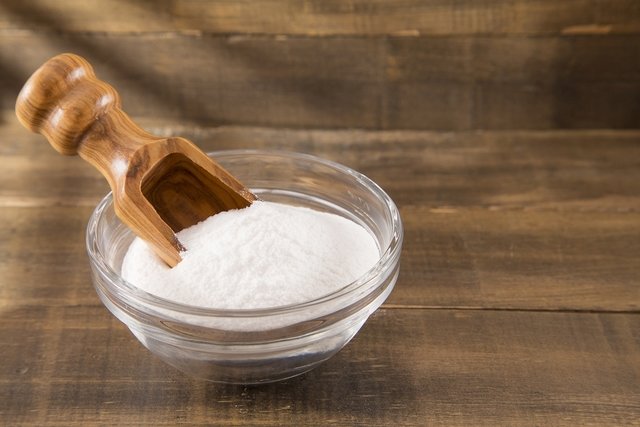Dolomite is a mineral rich in calcium and magnesium carbonate that can be used to lighten the skin, help treat acne and dandruff, and heal wounds, as it has a whitening, antiseptic and anti-inflammatory action.
Being sold in pharmacies or health food stores, dolomite can also be found in the form of dietary supplements, which can be recommended to prevent osteoporosis, relieve fatigue and muscle pain and improve digestion.
However, as there is still no scientific evidence on the effectiveness and safety of ingesting dolomite, this supplement should only be consumed under the recommendation and guidance of a doctor or nutritionist.

What is it for
Due to its antiseptic, whitening and anti-inflammatory action, dolomite can be indicated for:
- Whiten skin and teeth;
- Help with acne treatment;
- Promote wound healing;
- Complement dandruff treatment.
Furthermore, ingestion of dolomite is believed to prevent osteoporosis, relieve fatigue and muscle pain, improve digestion and help treat gastritis, excess gas, diarrhea and gastric ulcers.
Does Dolomite lose weight?
Although it is believed that dolomite can help you lose weight, there are still no studies that prove that this supplement promotes increased metabolism or loss of body fat.
How to use
Dolomite is generally used in powder form, but can also be found in capsule supplement form. In the case of powdered dolomite, it is recommended to add water little by little, until a homogeneous paste is formed. Then, apply the mixture to the skin, face or hair, leaving it to act for around 20 minutes, and rinse with water.
As for dolomite in capsules, the recommended dosage can vary from 1 to 4 capsules of 500 mg per day, with meals, for example. However, there are still no scientific studies that prove the effectiveness and safety of ingesting dolomite. Therefore, taking this supplement should only be done with the advice and guidance of a doctor or nutritionist.
If you want medical advice, make an appointment with the specialist closest to you:
Taking care of your health has never been easier!
Possible side effects
The most common side effects of oral use of dolomite are stomach irritation, constipation, nausea, diarrhea and vomiting.
Additionally, oral dolomite supplements can also cause intoxication symptoms such as headache, diarrhea, tremors, and increased blood pressure. This is because some products may contain heavy metals, such as mercury, arsenic, nickel and aluminum. Know all the symptoms of heavy metal poisoning.
Who shouldn’t use
Children, as well as pregnant or breastfeeding women, should not use oral dolomite supplements, as the safety and possible side effects of this supplement in these situations are not yet known.
Furthermore, ingesting dolomite is not recommended for people with kidney problems, because it contains high amounts of magnesium and calcium.
People who use medications regularly should always consult their doctor before using oral dolomite supplements, as they may interact, altering the action of the medications.
Bibliography
- DRUGS.COM. Natural Products: Dolomite. Available at: <https://www.drugs.com/npc/dolomite.html>. Accessed on Aug 21, 2023
- MIZOGUCHI, Toshihide et al. Dolomite supplementation improves bone metabolism through modulation of calcium-regulating hormone secretion in ovariectomized rats. Journal of Bone Miner Metabolism. Vol.23. 2.ed; 140-146, 2005
- VERONEZE, H, Maria. Influence of calcium supplementation on lead levels and indicators of lead exposure in postmenopausal women. Doctoral completion thesis, 2008. Influence of calcium supplementation on lead levels and indicators of lead exposure in postmenopausal women.

Sign up for our newsletter and stay up to date with exclusive news
that can transform your routine!
Warning: Undefined array key "title" in /home/storelat/public_html/wp-content/plugins/link-whisper-premium/templates/frontend/related-posts.php on line 12
Warning: Undefined array key "title_tag" in /home/storelat/public_html/wp-content/plugins/link-whisper-premium/templates/frontend/related-posts.php on line 13



